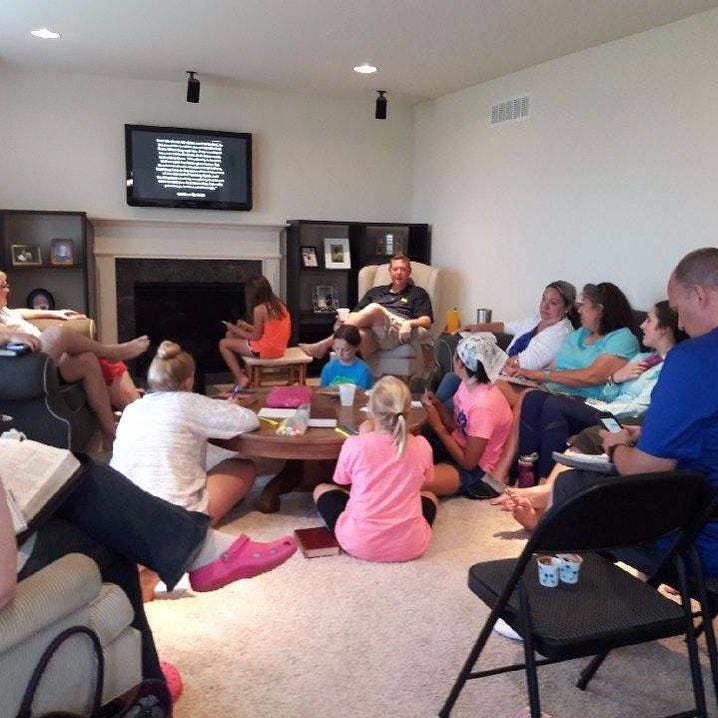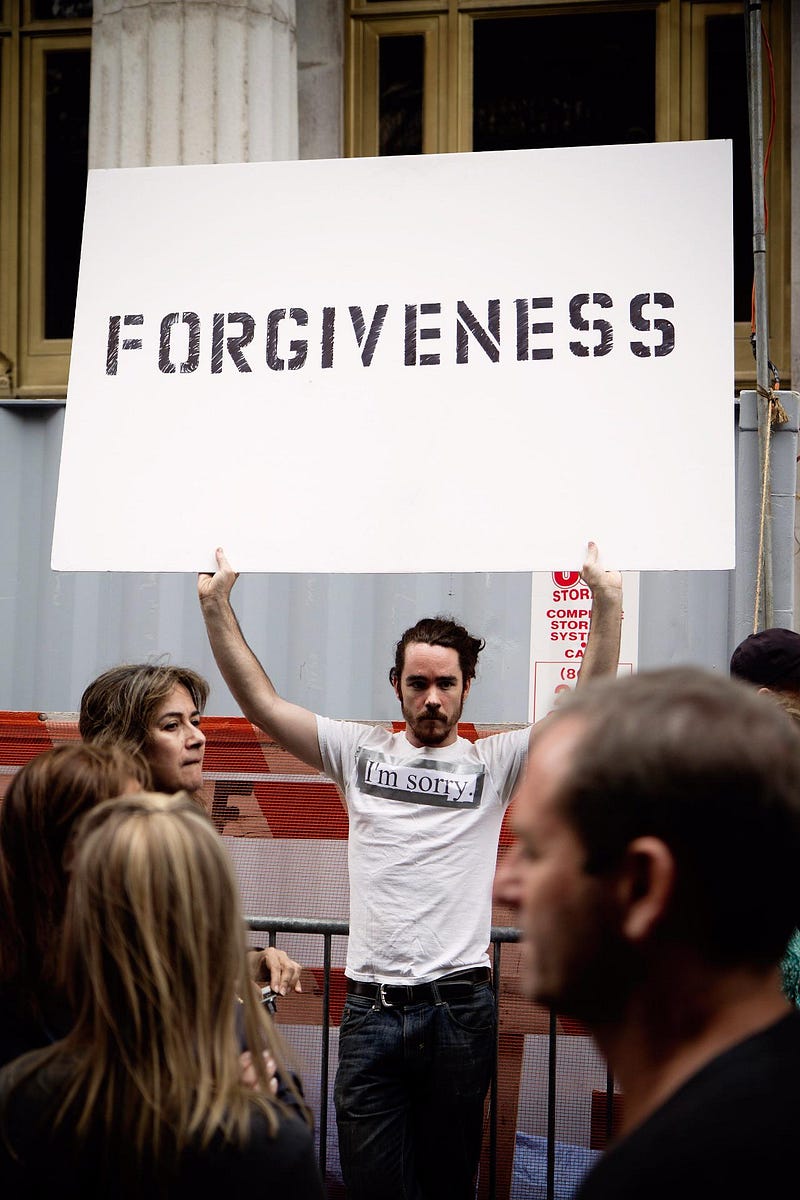
I’m a pastor. I invite people to follow Jesus. It’s my vocation, calling, and passion. Before becoming a pastor, I was a missionary on the college campus. I invited people to follow Jesus. There is nothing I want more than people to follow Jesus.
These essays are slow reflections for real life—written from the conviction that faith is not about having all the answers, but about learning to trust God in the middle of ordinary days, honest doubts, and unfinished stories. You’ll find Scripture, personal experience, and gentle theological reflection woven together in a voice that’s more neighborly than preachy.
If you’re curious, weary, hopeful, or somewhere in between, pull up a chair. There’s no pressure to arrive—just an invitation to think, pray, and keep going.

I’m a pastor. I invite people to follow Jesus. It’s my vocation, calling, and passion. Before becoming a pastor, I was a missionary on the college campus. I invited people to follow Jesus. There is nothing I want more than people to follow Jesus.

I’m a pastor. I invite people to follow Jesus. It’s my vocation, calling, and passion. Before becoming a pastor, I was a missionary on the college campus. I invited people to follow Jesus. There is nothing I want more than people to follow Jesus.
Over the last few years there is something that has significantly changed in the way I think about this calling and vocation. Not so long ago I would have said that I’m primarily concerned about people believing in Jesus. Getting folks to believe was the key step. I spent countless hours trying to convince people to place their faith in Jesus.
Belief and faith were the primary and central requirements that I was completely focused on.
Get folks saved, this was the key. There was nothing more important than that. Sure, I wanted people to grow in their faith and all the like, but seeing folks get saved was what mattered most.
I am someone who holds to what is known as “Reformed Theology.” One of the key beliefs we hold is that God is sovereign. Those of us who hold this theological system are what’s known as “monergists.” That’s a fancy way of saying that we believe that God is the one who does the saving of people.
It’s confession time: For most of my life in ministry I didn’t really believe any of that.
I would have said that I believed it. Often, I would argue for that position as being “biblical.” However, the way that I carried out ministry proved beyond a shadow of a doubt that I believed that I was absolutely responsible for getting people saved. I didn’t trust that God could do it without me. God needed me.
Something has significantly shifted in me over the last few years. I believe more deeply than ever in the mystery, magnitude, and greatness of God. I am more convinced than ever that God is more gracious, merciful, and good than we can even imagine. I am also convinced that I am not responsible for saving anyone. God indeed does that. He saves people. He changes people. In his radical grace and mercy he moves in people’s lives.
So, if I don’t have the responsibility to save people, what is my job as pastor? It is to help people follow Jesus. It is to make disciples.
To follow Jesus is exactly what it sounds like. We are to live like him. His life marked by grace, kindness, truth-telling, sacrifice, suffering, and joy is to be the life that we live. In his wisdom he commissioned his first disciples to make other disciples. In his wisdom he gifted some to be apostles, prophets, evangelists, shepherds, and teachers. The responsibility of us all working together is to bring his people to maturity. What is a mature faith? It is a person who looks like Jesus.
Could you imagine a world where all the Christians lived like Jesus? Engaged the world like Jesus? What if people were living lives that were different enough from the rest of the world that people knew we were Christians by our love?
What if those of us who are pastors focused all of our attention on helping people actually live like Jesus? If that’s the case, where do we turn for help in doing this? I think we can look to Jesus and what he’s recorded as saying in the gospels.
I write all of this as an introduction and invitation to a new series of blogs on the parables. I have been spending quite a bit of time in them recently because they are fascinating and they are life giving.
The parables almost always seek to answer one question: What is the kingdom of God/heaven like? I’m beginning to see that they are also almost always pointing to how one is to live into the narrow way. I have been surprised to see an emphasis on living and acting in the parables as opposed to faith and belief. So often I expect Jesus to say, “Believe…” but he instead calls people to a lived a life. (This is not to devalue the need for faith. Jesus often says, “Your faith has healed/saved you.”)
What is the kingdom of God like? It is like a narrow way that leads to life.
Over the next few weeks we will explore that narrow way in the parables.
Originally published at danielmrose.com on April 4, 2019.
We live in a time where everyone talks about “community.”
“Community” this. “Community” that. “Community” “Community” “Community”
I have a secret to tell you.
A lot of people who are throwing around this word, “community,” have zero idea what it means or how it is supposed to work itself out in real life.
True community requires a few things.
Just like Vizzini from the Princess Bride, I have a feeling people don’t really know what community means.

I wrote yesterday about problems. Problems with he building centric model of being church and problems with the neighborhood missional approach to being the church.
It’s so very easy to point out problems.
The hard part is coming up with some solutions.

I wrote yesterday about problems. Problems with he building centric model of being church and problems with the neighborhood missional approach to being the church.
It’s so very easy to point out problems.
The hard part is coming up with some solutions.
What could it look like to be the church in a fresh way as we move into the next age of the church?
I think in some ways we must go back to move forward. From the outset I want to stipulate something: There will always be church buildings. There will always be large gatherings of Christians meeting together for worship, study, and fellowship. There will always be gatherings of Christians who want to eschew those types of gatherings. They will be drawn to the hyper local and intimate and happily trade off the larger corporate gathering. This has been the case from the beginning and it will continue to be that way. There is no wrong way to be the church. There will always be different expressions for different people, cultures, and communities.
With that as our starting point, I want to suggest an idea that has been floating in my mind for a few years.
I think that the problems that the building-centric church model faces is corrected by the missional neighborhood model and vice versa.
These different approaches of being the church need one another. If we could figure out a way to bring these two approaches together we could, I think, begin to make a significant shift in the west towards becoming a living, breathing, movement again.
I dream of the day when missional pastors in neighborhoods can leverage their expertise and train pastors in the building to help them understand the needs, attitudes, and concerns of the average person. I hope for a day when missional pastors can be mentored and cared for by a team of pastors in the building centric church.
Could you imagine?
What if the building centric church mobilized its considerable resources to be dispersed by the missional pastors in the neighborhoods?
What is the missional pastors in the neighborhoods could connect people who they are reaching out to with the kind of programming and broader Christian community that the building centric church offers?
In my mind’s eye, I can see a new way forward of the old model of cathedral and parish.
The missional communities in the neighborhoods would be the parishes. The building would be the cathedral and both would work in symbiotic relationship with one another. The cathedral church building could become the hub of ecclesiastical training, a sending agency, and a sacred space for the significant ceremonies that we carry out in the life of our faith (weddings, funerals, baptisms, celebrations, feasts, etc…).
What if, because of the cathedral, every pastor would be part of a pastoral cohort? What if because of every neighborhood missional community the cathedral would be constantly pulled out from its four walls?
The working together of these two valid and important types of being church could allow the Church to stay focused on what it needs to in mission and yet also provide the stability of the institution.
This all sounds nice. But something deep within the leaders of these two approaches will need to change for it to become a reality. They will both need to humble themselves and determine together to serve one another. The building centric model will need to let go of expecting the neighborhood pastors to be at meetings and teaching Sunday school classes. The neighborhood pastor will need to let go of their unlimited freedom. The building centric model will need to see the missional communities in the neighborhoods as extensions and not as drains. The missional communities will need to embrace the building centric as a sacred space and be willing to help care for it.
Both leaders and communities will need to embrace the messiness of loving one another.
It is possible. It is doable. But the both/and requires humility and respect and conflict and grace and mercy and listening and learning. The question is, are we willing?
Originally published at danielmrose.com on February 22, 2019.
What if you had a pastor living next door? A pastor who embraced you in your doubts and encouraged your questions? Yeah, I’m trying to be that guy.
I am a husband, a dad, and a pastor in a constant state of spiritual transition, reflection, and renewal. Some would call these things #deconstruction and reconstruction. I am constantly questioning almost everything. I hope you will too!
Beyond the #spiritual, #theology, and #culture, I love #Detroit #sports.


I often write and speak about how beautiful my congregation is. The truth of the matter is that I do love it, I love every messy thing about living life with the people who are in my congregation. There is nothing that I would rather do than be our neighborhood pastor.
It is life.

I often write and speak about how beautiful my congregation is. The truth of the matter is that I do love it, I love every messy thing about living life with the people who are in my congregation. There is nothing that I would rather do than be our neighborhood pastor.
It is life.
Yet, it isn’t perfect. There are problems, real and significant problems, inherent in a congregation like the one I lead. The biggest problem, the one that keeps me up at night, is loss of momentum.
Our congregation loves one another. We deeply care for one another. Like no other congregation I have ever been part of, these people live out the Scripture’s admonishment to “love one another.”
In the midst of this though is the very real possibility that it can lose momentum. We can become complacent and satisfied. When you deeply love and care for one another, it is easy to look around and think, “This is great, I don’t want anyone to come in and ruin it.”
When that moment comes, something significant is lost.
This loss of momentum or missional impulse that leads to complacency is the great weakness of a smaller, home based congregation. Particularly when all is going well.
Nobody is looking to “rock the boat.” We can easily rest in the reality that we have an amazing community. Those people would only ruin it.
When you have intentionally freed people to carry on mission without the programs of the congregation you risk losing momentum for the mission. People can become consumed with other things. It can be easy to slowly lose sight of the importance of connecting with their faith community.
When momentum is lost it is difficult to recover. It is much easier to lose momentum in a smaller community than a larger one, because there is little back up for the key people who bring the energy.
Along with momentum, there is also the down side of lack of scale.
Something I noticed working for a large para-church organization as opposed to the local church is its ability to serve on a large scale. It felt like the large organization had greater reach to serve more people. The numbers bear that out. The bigger organization has the ability to serve on a larger scale.
The small scale within which we serve in our neighborhood in beautiful and personal. Yet, our ability to serve on a larger scale is very limited. While we can help out immediate neighbor, our ability to have a significant on something like the Flint water crisis is quite limited.
Finally, the neighborhood based missional community approach has limited resources. One of the things that I appreciate about the mega-church is that it has resources that it can mobilize for the greater good of the body of Christ. The finances it can invest in missionaries and other community service is amazing. The number of people that a mega-church or even a church of 150 can mobilize to service is amazing. There are resources that can be freed by the larger building-centric congregations that a neighborhood base congregation is unlikely to ever amass.
Let me be clear, in spite of these potential issues, I am convinced that this is the best way to live as the church. This is not to say that the other ways of being the church are bad or “less than,” they certainly are not.
Quite simply, this the manure that makes the grass green on my side of the fence and I think it smells great. These are the problems that I prefer to deal with and worry about. Also, I don’t think our missional community has lost momentum or is in any immediate danger of losing momentum. But, it isn’t fair to critique one approach without also looking for the plank in one’s own eye.
Originally published at danielmrose.com on February 21, 2019.

I met with someone recently who is interested in launching a new congregation. They listened to my stories and my heart. I felt really heard by them. It was a wonderful time. It is evident they are a good person who loves Jesus.
They asked the question in our conversation that always comes up when discussing my perspective on leading congregations.
Why would having a building be so bad? How would it hurt what it is you’re doing?

I met with someone recently who is interested in launching a new congregation. They listened to my stories and my heart. I felt really heard by them. It was a wonderful time. It is evident they are a good person who loves Jesus.
They asked the question in our conversation that always comes up when discussing my perspective on leading congregations.
Why would having a building be so bad? How would it hurt what it is you’re doing?
I have been a pastor in multiple settings since leaving seminary. I have served a very small institutional church that transitioned to a missional approach, I have served at a small mega church, and I have served a missional neighborhood congregation. Being in each of those settings has offered me the opportunity to see behind the curtain of each. All three have their positives, all three have their negatives, the grass is not greener anywhere. Each approach uses their own version of manure and each kind of manure has its own distinct odor, you simply have decide which you prefer to smell.
The one thing that is true about both approaches where a building has been involved is that the leadership of the church is primarily focused on the development of financial resources for the building. The means by which this takes place is by bringing in enough people as giving units to fund the building and its necessary extras. At this point, the primary focus of the leadership of the local congregation ceases to be about the work and life of the congregation, but becomes more akin to a business.
Woah! Woah! Woah! That’s way too cynical. WAY TOO CYNICAL. It sounds like you’re saying that churches with buildings are primarily being run like businesses. I don’t think that’s fair.
I understand that this might make some folks upset. I get it. It’s a hard truth to hear. Yet, if you were to sit in many of the meetings that I have sat in over the years what you would see and hear are discussions based on one thing: money.
Income and expense reports are shared each month. They are gone over with a fine tooth comb. Discussions ensue about how to raise the income and limit the expenses. The desire to grow the congregation is rooted in the need to get more money. Buildings age as do their systems. Things need to be fixed and replaced. Being a good steward demands that the congregation pay its bills. To pay bills you have to have money. To have money you need giving units. To get more giving units you have to figure out to have more people come through the doors and start giving you money.
I have become convinced that the moment a congregation owns a building it necessarily changes its identity from “congregation” to “business.” The pastor becomes the CEO, the Session becomes the “Board.” Congregants become “guests” that need goods and services provided to them. We desire to make them comfortable more so than to challenge them and press them into deeper discipleship. Why? Because we don’t want them to go down to the church down the street.
The church world is very competitive. You don’t want to lose out to the cooler, more hip place down the street.
Am I cynical? Perhaps. I’m fine with that charge. I’m actually very comfortable with it.
Here’s what I know, in the six years of serving a missional neighborhood based congregation, my Elders and I have barely discussed finances. They are almost a non-issue and they are certainly not something that we spend time worrying about. Our Session meetings are times of them ministering to me and us praying for our congregation.
I may be cynical, but I am convinced I’m right about how owning a building changes the nature of a local “church.”
Also, let me be clear: I don’t believe that congregations with buildings are doing something inherently bad, wrong, or unbiblical. I am grateful for the way they serve their communities and all the ways that they honor Jesus.*
One last caveat: My next post will be a critique of the missional neighborhood congregation approach. So, don’t worked up that I think my current congregation is THE way and all other approaches to living as the church is wrong.
Originally published at danielmrose.com on February 21, 2019.

Each week I have the joy of gathering with friends to share communion. Communion is the culmination of our time together. It is not quiet or somber. It is noisy and talkative. It is beautiful and I love every minute of our inefficient celebration of the Lord’s Supper.
Before that time we gather in together in a mob of humanity in my living room.

Each week I have the joy of gathering with friends to share communion. Communion is the culmination of our time together. It is not quiet or somber. It is noisy and talkative. It is beautiful and I love every minute of our inefficient celebration of the Lord’s Supper.
Before that time we gather in together in a mob of humanity in my living room.
We open the ancient collection of texts known as the Bible.
We read and question and discuss.
We think and doubt and believe.
We do all these things together, kids and adults.
We learn and lead and press into life.
The we of the gathering for communion each week leaves me in awe. Some weeks the we includes more people than other weeks. Yet, it doesn’t matter how many or how few.
What matters is the rhythm of the time and being present and alive with one another.
Some weeks there are tears. Every week there is laughter.
Some weeks there is dessert. Some weeks there is quinoa. Every week there is enough.
When my house empties I realize that there is one thing true: I am changed.
These amazing people change me. They leave me filled and overwhelmed with joy.
The bread and juice may be the “elements” of communion, but it is the people that make communion live and breathe.
The stories, the prayers, the laughter, the tears, the people.
These are communion.
Originally published at danielmrose.com on February 18, 2019.

Why are we, Christians, upset when people want to hold us to a higher standard than others? When this happens I see the response from other Christians,
“We are sinners too, you know!” “We aren’t perfect, that’s why we need Jesus.” “We are broken.” “We are just like anyone else.”

Why are we, Christians, upset when people want to hold us to a higher standard than others? When this happens I see the response from other Christians,
“We are sinners too, you know!” “We aren’t perfect, that’s why we need Jesus.” “We are broken.” “We are just like anyone else.“
Here’s the thing, we claim to follow Jesus if we bear the name “Christian.” If that’s the case then we are to appear to be his followers. The word in the Bible for this is “disciple.” This word means, “learner.” We are to be learning from Jesus.
In the first century, disciples would seek to be exactly like their teacher (the word they would have used is “Rabbi”). They would take on his mannerisms, language, everything they could. They would walk so close to him as to get his dust on them. They wanted to be just like their teacher. Paul calls this “having the mind of Christ.”
Jesus said,
“You are the light of the world. A town built on a hill cannot be hidden. Neither do people light a lamp and put it under a bowl. Instead they put it on its stand, and it gives light to everyone in the house. In the same way, let your light shine before others, that they may see your good deeds and glorify your Father in heaven.” — Matthew 5:14–16
This is such an important statement from Jesus. What he’s saying is that our lives, our actions, what we do, points people to God. The way you live your life matters. It matters how you act, what you say, because the world is watching you.
Christians are held to a higher standard, we are held to that standard not by the world but by Jesus.
Jesus tells us to pray, “Lead us not into temptation but deliver us from the evil one.” He is telling us we need to pray and ask for help in avoiding sin. We need help to live the kind of life that points people to God.
This is not some sort of weird moralism. No, this is more than that. We must be diligent and mindful in paying attention to our lives. When we stop paying attention we slide into stress and unhealthy modes of living. When we pray this prayer we are setting our minds on the necessity to be aware of our lives and how we are living. There is an intentional mindfulness.
If we are going to be on mission with Jesus we must live the Jesus life. We must live lives that look like his. We must pursue a unity with the mind of Christ. Our lives by necessity need to be marked by self-sacrifice, love, joy, peace, patience, kindness, goodness, faithfulness, gentleness, and self-control.
Being on mission with Jesus is to live this life in the public sphere. This means that we will be judged by how well we live it out. This is our reality.
—
Thanks for following along on this journey through the Lord’s Prayer and how it relates to missional living. Here are the links to the whole series. I hope you found it helpful. I know it has been eye-opening for me to think through these things and to process them over the last few weeks.
—
Originally published at danielmrose.com on February 14, 2019.

Who is your “them”? Is it conservatives? Maybe your “them” is liberals. Perhaps your “them” is cishet white males. Your “them” may very well be homosexuals. It could be that your “them” is people of color. Whomever your “them” is, to be on mission is to move towards “them” in love and forgiveness.
In the prayer that Jesus taught his disciples to pray he said, “Forgive us our debts as we forgive our debtors.” This could be understood as “trespasses” or “sins.”
I love how Eugene Peterson puts this in The Message,
Keep us forgiven with you and forgiving others.
After he teaches the prayer, Jesus talks even more about this and says that you can’t experience forgiveness yourself if you don’t extend forgiveness to others. Think about this, Jesus is getting at the root issue for many people. Many of us are harboring bitterness, anger, and hatred in our hearts. There are tons of folks who are “them” to us and we refuse to forgive them.
If we are going to be a people on mission in the world, we must become agents of forgiveness.
This does not mean that we are doormats. It doesn’t meant that we don’t speak truth to power. It doesn’t mean that we ignore evil.
It does mean that we move towards people who we consider to be “other” in love and forgiveness.
After Apartheid in South Africa they developed the Truth and Reconciliation Commission. “The TRC operated by allowing victims to tell their stories and by allowing perpetrators to confess their guilt, with amnesty on offer to those who made a full confession. (Wikipedia)” The goal was not punishment. It was reconciliation and forgiveness.
Paul writes in 2 Corinthians 5 that we are to be ambassadors of reconciliation. This means that we are to be agents of forgiveness.
Forgiveness is lived practice. We show our forgiveness by moving toward the “other” in love.
What does it look like for you to move towards the people in your neighbor in love? Whom do you need to forgive? How can you love well?
—
I’m slowly working my way through the Lord’s Prayer as a roadmap to missional living. Do you want to catch up? Here you go:
Originally published at write.as.